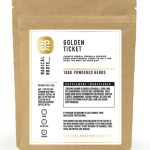Endometriosis is a complex and often misunderstood condition that affects an estimated 1 in 10 women of reproductive age globally. It involves the growth of endometrial tissue, which normally lines the uterus, in areas outside the uterus.
This can cause pain, infertility, and other complications. For many women, understanding and managing this condition requires a multi-faceted approach that considers both Western and Eastern medical perspectives.
From a Western perspective, endometriosis is typically managed through hormonal therapies, pain management, and sometimes surgery. However, these treatments don’t always provide complete relief, and some women find additional benefits from incorporating approaches from Eastern medicine.
The Western Perspective on Endometriosis
Western medicine characterizes endometriosis as a hormonal and immune system disorder, which leads to the growth of endometrial-like tissue outside the uterus. This misplaced tissue behaves like uterine lining, thickening, breaking down, and bleeding during each menstrual cycle. But, with nowhere to exit the body, the tissue becomes trapped, causing pain, inflammation, and often the formation of scar tissue and adhesions.
Treatment in Western medicine generally focuses on relieving symptoms and slowing the growth of endometrial tissue. Options include:
- Hormonal therapy: These medications, like birth control pills, GnRH agonists, and progestin therapy, aim to reduce or eliminate menstrual periods, thereby minimizing the pain associated with endometriosis.
- Pain relievers: Over-the-counter pain relievers such as ibuprofen are often recommended for managing the pain.
- Surgery: In more severe cases, or when women are experiencing infertility, surgery may be done to remove the endometrial tissue. In extreme cases, a total hysterectomy (removal of the uterus and possibly the ovaries) may be recommended.
Golden Ticket
Created by our founder, Chloe, who knew that she would never skip her cup of coffee! Simply add the coffee, smoothies, or any recipe and support our busy bodies all day.
Topical Relief Salve
In a league of its own in the topical space. This jar contains potent anti-inflammatory herbs in addition to a powerful dose of full spectrum hemp. Just apply to areas of discomfort for long term relief.
The Eastern Perspective on Endometriosis
Eastern medicine, particularly Traditional Chinese Medicine (TCM), interprets endometriosis differently. It views the disease as a result of stagnation or imbalance in the body’s vital energy or ‘Qi’ and blood. Factors such as emotional stress, improper diet, overwork, and hereditary weaknesses can contribute to this condition.
TCM treatment strategies for endometriosis often include:
- Acupuncture: This practice involves inserting fine needles into specific points on the body, thought to promote the flow of Qi and blood to alleviate pain and inflammation.
- Chinese herbal medicine: Combinations of herbs are used to balance the body, nourish the blood, and break up blood stagnation. Some herbs used in TCM for endometriosis include Dang Gui, Chuan Xiong, and Yi Mu Cao[^1^].
- Diet and lifestyle changes: Adopting a balanced diet and a healthy lifestyle is also seen as integral to managing endometriosis symptoms.
Herbal and Supplement Recommendations
Beyond conventional treatments, certain herbs and supplements have shown potential in helping manage endometriosis symptoms:
- Curcumin: The active ingredient in turmeric, curcumin is an anti-inflammatory compound that may help reduce endometriosis pain and inflammation[^2^].
- Omega-3 fatty acids: Found in fish oil, omega-3s have anti-inflammatory properties that could help manage pain and inflammation associated with endometriosis[^3^].
- Resveratrol: This natural antioxidant, found in grapes and berries, has shown promise in reducing endometrial growth[^4^].
- Vitamin D: Studies suggest that Vitamin D could play a role in managing endometriosis, as it has been found to inhibit the growth of endometrial cells[^5^].
It’s crucial to consult your healthcare provider before starting any new supplement regimen, as these can interact with other medications and have side effects.
Empowerment Through Knowledge and Action
In managing endometriosis, knowledge is power. By understanding the condition from multiple perspectives, women can explore various treatment options, empowering themselves to take an active role in their healthcare decisions. Whether it’s seeking hormonal therapy, incorporating acupuncture, or trying dietary changes, a multifaceted approach can lead to more comprehensive symptom management.
While there’s currently no cure for endometriosis, progress is being made every day. Ongoing research and increasing awareness mean that the future is hopeful for the millions of women living with this condition.
[^1^]: Flower, A., Lewith, G. T., & Little, P. (2014). Chinese Herbal Medicine for Endometriosis. Cochrane Database of Systematic Reviews. DOI: 10.1002/14651858.CD006568.pub4
[^2^]: Jana, S., Paul, S., & Swarnakar, S. (2012). Curcumin as an anti-endometriotic agent: implication of MMP-3 and intrinsic apoptotic pathway. Biochemical Pharmacology, 83(6), 797–804. DOI: 10.1016/j.bcp.2011.12.027
[^3^]: Porpora, M. G., Brunelli, R., Costa, G., Imperiale, L., Krasnowska, E. K., Lundeberg, T., … & Parasassi, T. (2013). A Promise in the Treatment of Endometriosis: An Observational Cohort Study on Ovarian Endometrioma Reduction by N-Acetylcysteine. Evidence-Based Complementary and Alternative Medicine, 2013. DOI: 10.1155/2013/240702
[^4^]: Bruner-Tran, K. L., Osteen, K. G., Taylor, H. S., Sokalska, A., Haines, K., & Duleba, A. J. (2013). Resveratrol inhibits the development of experimental endometriosis in vivo and reduces endometrial stromal cell invasiveness in vitro. Biology of Reproduction, 88(2), 1-8. DOI: 10.1095/biolreprod.112.104833
[^5^]: Zondervan, K. T., Becker, C. M., & Missmer, S. A. (2020). Endometriosis. New England Journal of Medicine, 382(13), 1244-1256. DOI: 10.1056/NEJMra1810764






